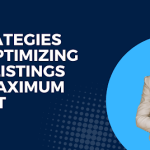Table of Contents
What is a resume?
A résumé or resume is a document created and used by a person to present his personal information like email address, mobile number, postal address, educational qualification, educational background, professional skills, achievements, and accomplishments. Résumés can be used for a variety of purposes, but most often resume are used to secure new employment/jobs. A typical résumé contains a “summary” of relevant job experience and educational qualifications.
What is Curriculum vitae (CV)?
Curriculum vitae, Latin for “course of life”, often abbreviated and shortened as CV or vita, is a written overview of someone’s life’s work. Vitae can be plural or possessive. Vitae often aims to be a complete record of someone’s career. How to tie a tie?
What is the difference between CV and Resume?
Now that you have a clear idea of a CV and Resume, following is the complete list of the core differences between the curriculum vitae (CV) and resume.
- Length – how long each one of them is the first and most notable difference between a CV and a Resume. A resume is short and brief, that is usually 1 page, whereas the CV is more comprehensive and detailed version of a resume, that is it can go up to 2 to 3 pages depending on your work experience of the relative field.
- Function
– The second main area of comparison between CV and Resume is their function, that is where are they used. CV is mainly used for educational purposes, such as applying for a research program, a Ph.D., or joining the staff of a high school, college, and university. The resume, on the other hand, is written for a regular job in a company of a corporation. - Type of information you include – The CV is an academic diary where you include all your academic qualifications, achievements, and certifications. It is universal in nature as it can be updated as you go. Whereas, a resume has to be created (or at least customized) for each job you’re applying for, and has a bigger focus on your professional achievements, rather than academic.
How to Make a Resume then, some important tips and points?
Making a resume is always a troublesome work for everyone. Because one has to worry about grammar, font, template, structure and in the end, it comes to listing down one’s achievements and skills with respect to the vacant post. a resume is very important to be structured properly as your professional career depends upon it mostly. This is the first impression, and there is a famous maxim, the first impression is the last one. And getting a job in the early stages of your life makes you professional and disciplined. And both of these combined will get you closer to success, in terms of money and wealth, also health and many more. The first step to have all these is to write a resume.
Some other important Tips
It is considered that writing a resume is complicated and irritating, but you need not to panic, because that is why we are here for. It does not matter if you are a fresher, a professional, or a home-maker trying to find a part-time job. By the end of this article, you will be able to write a resume for yourself, and you can also help others making theirs. Your interview call depends upon your resume, as it is the introduction of yours to the HR department of any company. By the end of this article you will be able to understand what interviewers look for, and the structure of the resume. How to write a cover letter
In the end, we will discuss some extra points to make your resume more efficient. Before we begin, let me tell you, you can improve your resume the way you want because is no certified way to write a resume.
What do Interviewers look for in a resume?
It is less about what they look for and more about what they see. For instance, you are applying for the role of a blockchain developer. However, the same rules could be applicable for Banking, Hotel Management, Education, and Sales. Now the problem is, there are more than a hundred if not thousand applications and resume for the same job. Interviewers mostly give almost 10 to 15 seconds to your resume and decide whether to call you for an interview or not.
If your profile is not appealing, then you have missed the chance, because there are many profiles to be reviewed. Therefore, your resume should not be like a long boring list. It should be like an advertisement, short and concise. Keeping this in mind, we will now discuss the resume structure.
Structure of Resume
To understand the resume structure better, click on the given link at the end and write your own resume with the help of this article. For this purpose, let us make a resume at Google Docs, but you can download a template as a word document and edit it in MS word. Using Google Docs is a better idea for free users. Just click on the link and you are there. You can understand the structure is already built, now the question of concern is what to fill in this structure. We will first fill this structure for a professional and experienced profile and then we will go for a fresher profile with few changes in it.
Now let us assume that we are applying for a blockchain developer, but remember that you can apply these rules for any job in any field.
For experienced:
- Your name in the first place
- Now after the name is a professional title, that defines you professionally, like a problem solver, web developer, firefighter, and so on. Make sure what you write in your professional title, you support it throughout your resume.
- Next thing is your contact information, email, mobile number, etc. make sure your email sounds professional. Do not mention some unprofessional email address on your resume.
- Your date of birth, marital status, and religious affiliation is not important and necessary to mention.
-
Next comes experience
- here you will mention your current job first and then go back to mention your old jobs in reverse chronological order. Mention the name of the company, job role and also mention the time period you have been held for that role. If you have the same company but a different role, mention all roles in each different section. This section is an opportunity to mention how much your experience aligns with the announced position or role. Remember to sprinkle the keywords mentioned in the job description throughout your experience section.
- This way the hiring team will come to know that you have the experience the team needs. Always remember to be specific about your achievements. That is if you are applying for a social media role then just mentioning Facebook page that you manage is not a good idea. Instead mention something like revamped a business page on Facebook that led to over 70,000 followers. Up by 40 percent in two months and has led to a 4 percent increase on revenue.
For an experience level resume
- keep your education section short and sweet. You need not mention your 10th-grade scores and results, instead just mention the details of your last degree.
- Next comes the Skills section, for instance, if you are applying for an IT job, then here come languages, technologies you have hands-on, and also rate how well you know them. But keep them linked with the job description.
- If you are not from the software field, then you can mention communication skills, social media skills, critical thinking skills. Basically do not forget to mention skills according to the job description.
- Next is an additional section. This is the best portion to mention awards, certifications, publications, volunteer work, patent, languages. And those that are relevant to the description of the job. 4 Evolving Technology Areas Of Smart Cybersecurity
For Fresher:
In case you are a fresher or applying for an entry-level job, then the resume remains pretty much the same, except for three changes. First is education, if you are a fresher mention your education before your experience and in reverse chronological order, mention it up to your 10th standard. Second experiences, if you are a fresher, you have nothing or very little to mention under the experience section. Here are still a few things you can mention. If you are an engineer, you have done some mini projects every semester.
This is the perfect time to mention all of these. Name the project and describe it within two to three lines. You can also mention any internships you have done. Even if you have worked part-time to pay your fees, you can mention here. Because it tells the hiring team that you are committed, and have professional skills in your life. The third and the final change is, in case you are a student. You can fill an additional section with a lot of things.
Before forwarding your resume, keep these three points in your mind.
- Keep your resume to one page
- Always give a proofread
- Do not lie in your resume
That is how you make a better resume for any job.



















